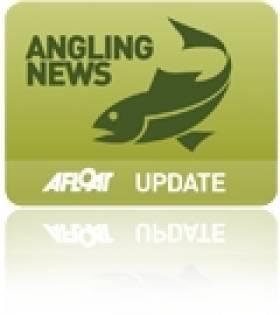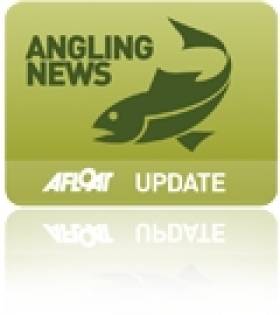Displaying items by tag: Midlands
Minister Launches €240K Funding For Fisheries Development
#Angling - The 2015 Salmon Conservation Fund (SCF) and Midland Fisheries Fund (MFF) are now open for applications, Minister Joe McHugh has announced yesterday (Wednesday 15 April).
In total, €240,000 is available to conserve and develop the inland fisheries resource from funds generated through the sale of salmon licences and Midland Fisheries Area permits.
The schemes administered by Inland Fisheries Ireland (IF) will facilitate clubs, fishery owners, commercial salmon fishers and other organisations to undertake works to improve habitat, stocks, access, invasive species management and angling, under the supervision and direction of IFI.
The works undertaken are important in maintaining and improving capacity within the inland fisheries resource, which is estimated to contribute €755 million annually to the Irish economy.
Announcing the schemes, Minister McHugh said: “I am pleased to be able to support IFI in making these funds available to fisheries interests to allow for ground-up, managed sustainable development of the inland fisheries resources.
"Some wonderful projects have been supported since these funds have been established and I encourage all those interested in fisheries to investigate the possibilities under the various schemes to conserve, develop and promote their local fisheries.”
The Salmon Conservation Scheme has been in existence for eight years and has allocated funding to 184 salmon projects all around Ireland. €200,000 is available for distribution under this scheme in 2015.
The Midland Fisheries Fund, which is now beginning its third year, has seen 17 projects undertaken in the midlands area developing angling resources, supporting scientific research and conserving fisheries habitat. A further €40,000 is available under this scheme for 2015.
Full details and application forms are available on the Midland Fisheries Fund HERE.
€50K Funding For Midlands Angling Clubs
#Angling - Angling clubs and community development groups in the Midlands Fishery Group Permit Area will share funding of €50,000 this year to carry out sustainable fishery development projects.
The Midland Fisheries Fund (MFF) was created by Inland Fisheries Ireland (IFI) from angler contributions set aside from the permit income received by IFI in the Midlands Fisheries Group permit area.
This year, funding will be awarded to eight sustainable angling development projects ranging from the development of access for anglers with disabilities to river rehabilitation and provision of shallow water marker buoys on midlands waterways.
IFI said it was thrilled at the great response received to this, the pilot year of the MFF. A wide range of fishery projects were applied for and the top eight proposals will share the available funding of €50,000.
Among the successful applicants were Lough Owel Trout Preservation Association, Kilconnell Community Development Association Ltd, Inny Anglers Development Association, Lough Sheelin Trout Protection Association, Ballinlough and District Angling Club, Pallas Lake Fly Fishing Club and Lough Derravarragh Angling Association.
The MFF is exclusive to the Midland Fisheries Group area and is only open to clubs in that area. This scheme, which is similar in design to the Salmon Conservation Fund, will allow for habitat improvement but importantly also includes angling development projects.
The successful applicants will be provided with technical assistance to help their projects become a reality.
"This fund reaffirms IFI’s objective to facilitate stakeholders to undertake sustainable development works," said Fergus O’Dowd, Minister of State with responsibility for Natural Resources. "These works will enhance and improve fisheries habitats and angling tourism potential and the contribution the inland fisheries resource makes to the economy.
"This scheme encapsulates the partnership approach between IFI and its stakeholders, ensuring projects are environmentally sustainable, undertaken with the appropriate permissions and guidance and developed by local angling clubs for the benefit of locals and tourists alike."
IFI chief Ciaran Byrne added: "It was clear from the large number of applications we received that anglers in the Midland Fisheries Permit Area are very keen to invest these funds, created from angler contributions, back into these fisheries.
"I’m very happy with the wide range of successful projects this year and wish the clubs all the best with their development work."






























































